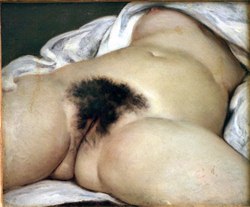Years before I ever self-identified as an activist (I usually considered myself “an army of one”), I emailed Michael Connelly complaining about his book Chasing the Dime. A client had given me a Harry Bosch book and I really enjoyed it. When I discovered Connelly had written a book about the murder of a callgirl, I bought it immediately. I finished the book only because I’m a stubborn cuss. Then I hurled it across the room, with great force; and dug up his email address.
I complained because the callgirl who was the driving force behind the entire book was dead before page 1. She was murdered by an advertising mall that reminded me of CityVibe. (I’ll assume Connelly’s research led him to create a company that was a combination of CityVibe and Eros with a whole lot of stereotyping thrown in. Believe me, I don’t think the CityVibe folks go around murdering their Verified Escorts, no matter how flaky the girls are.) The girl even did some BDSM scenes for online consumption, which included the horrors of having hot wax dripped onto her torso by her female modeling partner and the obvious faking of facial expressions for money. I asked Connelly why he felt the need to murder his callgirl, why couldn’t she have been alive at some point in the book, why did she have to be such a victim?
His assistant replied that Connelly was building sympathy for the character. I immediately shot back, commenting that not only was that lazy writing, people are capable of being sympathetic while alive, even callgirls. I never heard back and honestly did not expect to. Why would his assistant waste time arguing about a fictional dead callgirl with some partially-fictional blonde escort in Dallas?
That exchange has always stuck in my mind. Connelly has obvious fictional talents; I enjoyed his Harry Bosch book and millions of other people have enjoyed that entire series. The main character in Chasing the Dime wasn’t very sympathetic, should he have been killed too? On the other hand, this character was so intrigued by the callgirl that he solved her murder. That doesn’t happen too often in real life. Obviously the cops were less than concerned, which reflects reality precisely.
That the only way an experienced crime-writer like Connelly felt a sex worker could ever possibly be a “good girl” is to be a dead girl is profoundly disturbing to me. Millions of people read his books and they’re absorbing his message: the only good hooker is a dead one. The only way they can feel sorry for us is if we’ve paid for our sins with death. Even the mundane details of the girl’s life (she drank milk! she has a good credit rating! a cute little house! a pet! a family who misses her!) are presented as exotica. As if she is somehow completely removed from all normal human existence, as though she was created, lived and worked in a vacuum. Her murder was her only connection to the “real” world in the book.
For Connelly, the problem is that he could not have sympathy for her as a normal, living human being.
